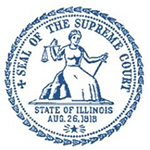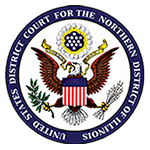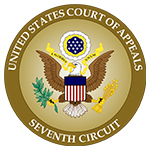Comprehensive Representation through All Stages of the Administration of a Will
When a loved one passes away, family members face the prospect of navigating the court-supervised administration process guided by state intestacy law or the decedent’s Will. Many people devise a living trust to avoid the expense, delay, and lack of privacy associated with formal probate proceedings. Any person can administer a Living Trust outside the courtroom. However, Trust administration still involves the management and distribution of the trust by the successor trustee.
Our law firm represents clients in the following legal matters:
- Probate of Estates
- Guardianships
- Administering Trusts
- Preparation of Estate Taxes
- Contested Probate
Attorneys Administering Probate Estates in Illinois
Our firm recognizes that efficient handling of the probate process can promptly expedite a decedent’s assets according to their preferences.  While the process can seem complicated and confusing, probate in Illinois involves the distribution of assets according to the terms of a Will. In the absence of a will or trust, intestacy law. A personal representative (referred to as the “executor”) under Illinois law will facilitate the Will administration process. The Executor has a fiduciary duty to distribute assets according to the Will’s terms to creditors, heirs, and legatees (those designated to receive an inheritance from the Will).
While the process can seem complicated and confusing, probate in Illinois involves the distribution of assets according to the terms of a Will. In the absence of a will or trust, intestacy law. A personal representative (referred to as the “executor”) under Illinois law will facilitate the Will administration process. The Executor has a fiduciary duty to distribute assets according to the Will’s terms to creditors, heirs, and legatees (those designated to receive an inheritance from the Will).
The probate process begins once a person dies. If the decedent has a Will, the lawyer obtains the original Will and any copies available. The Circuit Court has jurisdiction over civil and juvenile cases. The Will to Clerk of the Court for the county where the decedent resided when they died. Illinois does not have a separate probate court.
When the decedent dies without a will (or living trust), the Executor will distribute the estate assets based on Illinois’ intestate succession law.
Each state will have a different probate process. Mr. Arendt regularly guides clients through the typical steps of the probate process; Including but not limited to, the following:
- Writing and filing a petition with the proper court to commence the probate process.
- Providing required notice to heirs identified in the will or intestacy statute.
- Submit a petition appointing an Executor of the Will or Administrator for the estate.
- The Executor gathers the assets of the estate and creates an inventory of the assets.
- Obtain appropriate appraisals and valuations of the assets comprising the estate.
- Ensure the satisfaction of debts and obligations of the estate, including payment of creditors.
- Selling of estate assets.
- Ensure paying of estate taxes (depending on the value of the estate and other facts).
- Distribute net assets according to the terms of the Will (or state law if no will or living trust exists).
Administration of Trusts in Chicago
Our firm promptly distributes trust assets, enabling your loved ones to maintain their living standards during this complicated process.
When a lawyer must modify a trust because one spouse predeceases the other, our law firm can help you navigate this process and make sure you understand your options.
 When the surviving spouse subsequently passes away, we assist trustees in performing duties that include:
When the surviving spouse subsequently passes away, we assist trustees in performing duties that include:
- Managing estate assets.
- Distribute real property.
- Allocate cash, investments, stocks, and other stuff.
We counsel and work with trustees in their fiduciary duties, including satisfying tax obligations and financial obligations and making distributions to beneficiaries.
Illinois Trust and Probate Administration Lawyer Richard J. Arendt specifically customizes his representation to pursue the decedent’s express wishes and family needs.
We offer a no-obligation free consultation so that we can evaluate your situation and answer your questions. Call us today at (312) 642-9606 to schedule your initial consultation.











